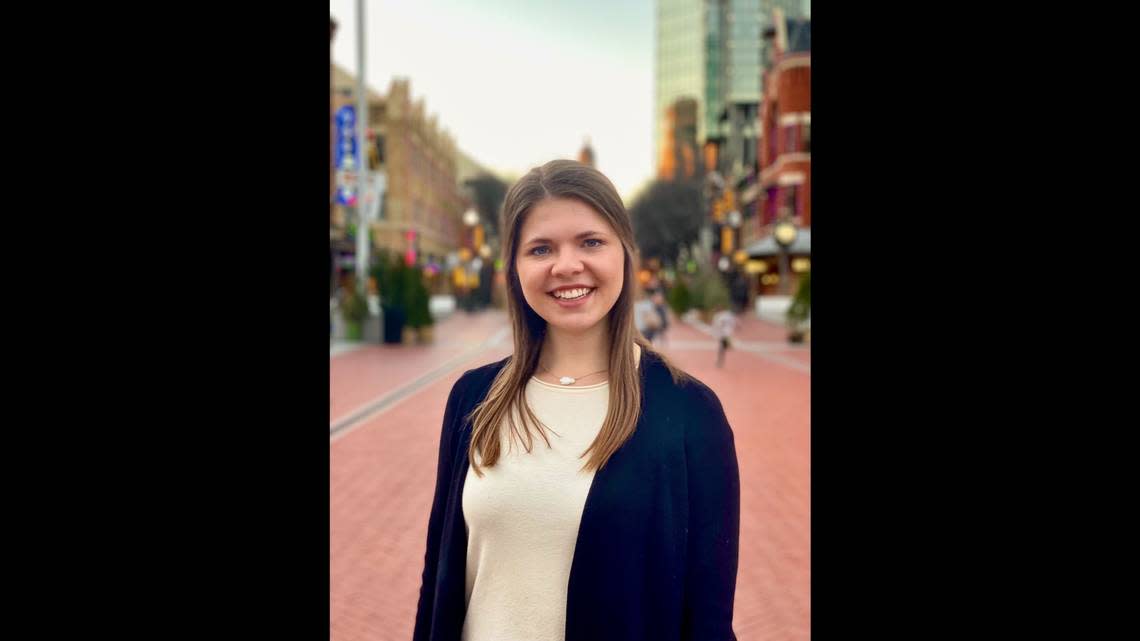Millions on the move: As war drags on, Ukrainian refugees still need our help
At Warsaw Central Station, as I awaited a train to the Ukraine border, one woman summed up her desires as she left her war-torn country.
“I just wanted to see clear, blue skies that were not full of airplanes and bombs,” she said. Then, with her children in tow, she boarded another train not knowing where the journey would take her or how long she would remain away.
Unbound Now is an international anti-trafficking nonprofit organization that supports survivors and resource communities to fight human trafficking. My parents, Stephanie and Brian Byrd, helped establish the North Texas office.
When Russia invaded Ukraine, Unbound Now sent me and a colleague to the Poland-Ukraine border to assess risks of trafficking and recommend a response strategy.
After intervening in several suspected trafficking scenarios, we formally established Unbound Now Europe to provide long-term services to survivors in the region.
Over the past seven months, I have heard the personal, heart-wrenching stories of many Ukrainians. We’ve sat together in Moldova, Romania and Poland, watching livestream videos of their homes in Dnipro, Kharkiv and Kyiv being bombed by the Russian military.
Each day, Ukrainians hear air-raid sirens sounding in their streets, and they see warnings pop up as notifications and map pins on their smartphones. As an American, I imagine seeing the equivalent on my phone: red dots representing incoming artillery fire across Philadelphia, Nashville or San Antonio, each representing lives lost and cities destroyed.
Since the invasion began Feb. 24, more than 12 million people packed what they could carry and left for … somewhere.
Children walked with stuffed animals and backpacks of clothes. Mothers carried family keepsakes, blankets, food rations, and official ID documents for foreign travel. They inched through long lines at border checkpoints, hoping their documents would be approved as they crossed into the European Union.
Many families chose — or found themselves in — a city like Warsaw or Krakow, where large refugee reception centers awaited them. These centers are the Polish equivalent of a Costco filled with cots and portable showers.
Despite the outpouring of aid, the conditions remain bleak. Hundreds of cots lined up, 2 feet apart, provide little insulation from the cries of young children through the night. Equally problematic, residents hustle for one of the few open outlets to charge their phone—their only connection to family members back in Ukraine. This has become normal life for Ukrainians who, only months ago were enjoying dinner with their families around a kitchen table.
With the onset of winter, and Ukraine’s central-heating infrastructure significantly knocked out by Russian airstrikes, refugee reception centers are preparing to receive many more people.
Amid tremendous suffering, Ukrainians have demonstrated remarkable generosity, courage, and selflessness.
My friend Alex pastors a Ukrainian church in Poland. He addressed his congregation during a Friday evening prayer service, delivering an exhortation I will not soon forget: “We are not refugees; we are missionaries to Europe.” I could hardly believe this when I heard it. This powerful call to purpose inspired many during a dark time.
Tables of supplies and groceries filled the fellowship hall outside the church for those in need, and almost all were sharing their small living spaces with others.
The way that Ukrainians have given to one another out of their own need has compelled me to look for any way I can contribute.
I find myself wanting to set aside the lesser concerns of life for issues of longer-lasting significance. How meaningful it would be to hold a woman’s hands and pray with her for her family. To help rebuild homes, businesses, and town squares. To create jobs and invest in the next generation of Ukrainian leaders. To share the hope of eternity with those looking for a reason to live another day.
As the war rages on, Ukrainians deserve our continued prayer and concentrated efforts as they press on for a peaceful future.
Allison Byrd is a law student at Texas A&M University. She graduated with a B.A. in international affairs from Georgetown University. Unbound Now is an international anti-trafficking nonprofit supporting survivors and resource communities to fight human trafficking.

